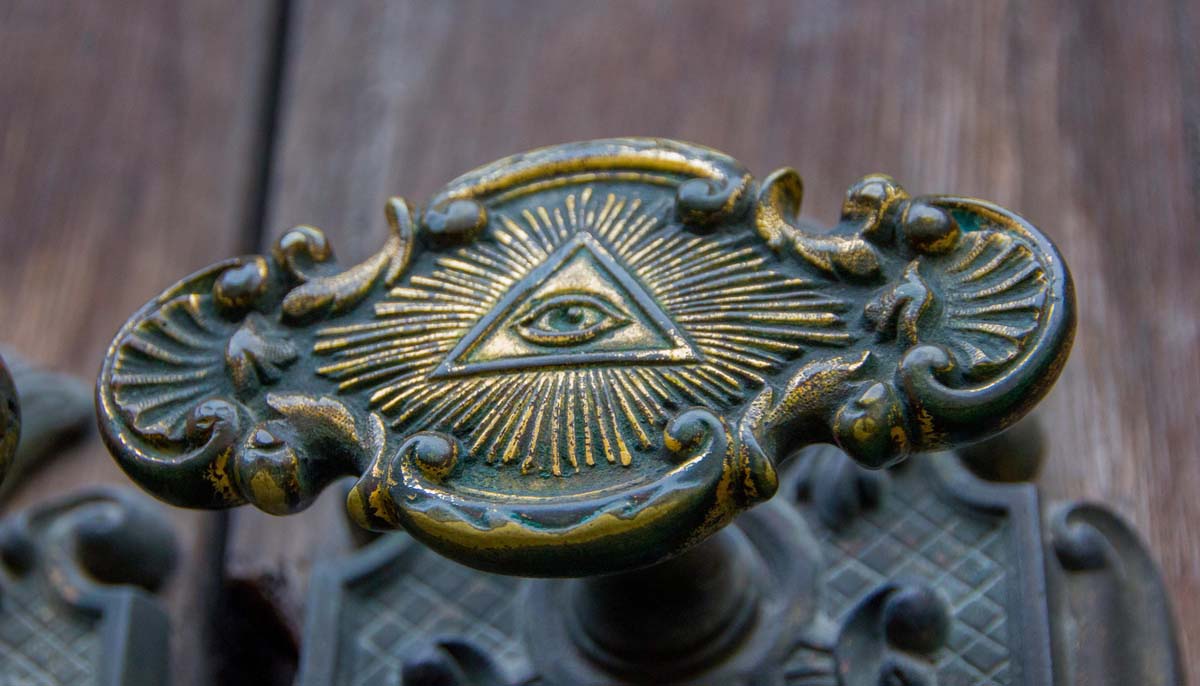Shutterstock
If you’ve spent any time looking into modern-day conspiracy theories, you might have noticed the prevailing notion that there is a “Deep State” operating behind the back of the president in the United States. Does this claim have any merit or is it completely unfounded?

To help us untangle this strange theory, frequent contributor Crystal Ferreira, a teacher over at Polyhistoria, is going to walk us through it. We’ll let her take it away!
This concept is used is by the QAnon conspiracy theorists that portray Trump as something of a superhero in a fight against the deep state. QAnon is an elaborate far-right conspiracy theory that has the president at its center. In fact, Trump’s Twitter account has retweeted or quote-tweeted QAnon accounts more than 25 times.
There’s a person, known only as Q, who’s supposedly a high-ranking government insider who drops online breadcrumbs to show believers the dark secrets of who’s really running the world. The basic premise is that the world is run by a cabal that controls everything. They control Hollywood and all the politicians and the highest reaches of business and the mainstream media.
In the QAnon narrative, Donald Trump knows all about this cabal, and he has been plotting for decades to help take it down. Since he has been elected, he has been working alongside this group of military intelligence officials, known as Q Team. They believe that this imaginary Q Team is made up of double agents in the government close to the president, and they’re revealing the details of the operation in coded messages. And this is all happening through online message boards like 4chan and 8chan.
A lot of the basic conspiracy theories that the QAnon people hold to are conspiracy theories held more generally by people in the far right. One of them is, for example, the Clinton body count conspiracy theory. There are some QAnon followers who believe that Hillary Clinton was responsible for the tragic death of JFK Jr. in July of 1999. That conspiracy theory was retweeted by President Trump shortly after the death of Jeffrey Epstein.
The general ideas within QAnon certainly spread outside the QAnon community. Charlie Kirk, a very popular conservative commentator who has met with the president, appeared on Fox News and spoke in colleges all over the country promoting really bogus Department of Justice statistics which claimed, falsely, that human trafficking arrests had skyrocketed under President Trump.
The source of the bogus human trafficking arrest statistics was the QAnon community, and the bogus stats had trickled up all the way to Charlie Kirk’s Twitter account.
The term Deep State (derin devlet) was actually coined in Turkey in the 1990s, when the military (with U.S. backing) colluded with drug traffickers and hitmen to wage a dirty war against Kurdish insurgents. The Deep State was defined then as a type of domination based on the high military autonomy levels that enabled the security apparatus to disrupt formal democratic institutions (in the foreground) by employing a sui generis repertoire of informal institutions (in the background), i.e. autocratic cliques, organized crime, and corruption.
In the U.S., the term “Deep State” was popularized by Mike Lofgren. He used the term to mean a hybrid association of elements of government and parts of top-level finance and industry that is effectively able to govern the United States without reference to the consent of the governed as expressed through the formal political process.
If you mean Deep State as, essentially, a diversionary process that’s underway to undermine democracy, then, yes, there is truth to that. Trump’s antics ensure that attention is focused on him, and it makes little difference how. The outrageous tweets/claims themselves don’t really matter. It’s enough that attention is diverted from what is happening in the background.
Out of the spotlight, the Republican Party is carefully advancing policies designed to enrich the constituency of private power and wealth. For example, the Republican Party is attempting to eviscerate the Dodd-Frank act, which imposes some controls over predatory financial systems.
As another example, the U.S. constituency doesn’t get to vote on trade agreements. Trade agreements are congressional-executive agreements. Congress does not vote on the agreement itself but on an implementing bill, which includes all the changes to U.S. law required to bring the U.S. into compliance with the agreement. The president can implement some provisions — those that do not require changes to U.S. law — by issuing a Statement of Administrative Action.
Of course, advancing policies designed to enrich the constituency of private power and wealth isn’t a new idea in U.S. politics–think back to Woodrow Wilson and the Banana Wars in Guatemala. However, the big difference today is that the Republican Party is now using populism and distraction to achieve its goals.
From the time of the Roman Republic, populism has been the brainchild of the elite to use the power of the people to achieve ultimate power outside of normal parliamentary politics. That’s how it’s still being used today. Populism is inherently undemocratic.